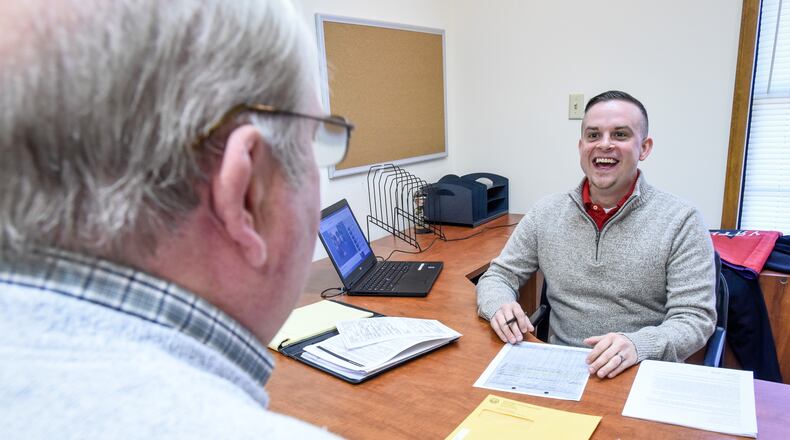The commission, which is responsible for helping about 26,000 veterans, is funded by a percentage of the general fund millage the legislature carved out to help veterans. Executive Director Mike Farmer said they have about $4.4 million available for expenses.
“Our overall goal is to continue to serve the veterans to the best of our ability here within Butler County,” Farmer said. “So as long as we stay within our millage, if there is a need that we’ve identified we need to address, then we feel like it’s certainly our obligation to budget and plan for it.”
The tax budget is the opening salvo on crafting a spending plan for next year. County Administrator Judi Boyko said the 2019 expense guideline is a base on which to build, especially since 7 of 10 union contracts countywide will be renegotiated next year.
Last year in the throes of the pandemic when all in-person veteran appointments were cancelled, the board spent $1.9 million and returned $730,178 to the county coffers. The board agreed in-person visits will resume June 3, but Farmer told the Journal-News the pandemic continues to impact the budget.
“A large unknown is what’s going to happen as we pull out of this COVID pandemic with unemployment and housing and food assistance,” Farmer said. “The other big unknown is transportation, with gas prices currently tettering at $3 a gallon, we have a surcharge in our contract if it tips over $3.”
Often confused with the Veterans Administration, the independent board is charged with helping vets navigate the VA system to get medical help and other services, arranging and paying for transportation to medical appointments, providing emergency financial assistance and finding local services.
The two biggest service expenses for next year are $800,000 for financial assistance and $700,000 for transportation. Due to the closure of the Middletown satellite office personnel costs are down 14.75% to $905,556 for employee wages and benefits. The county asked everyone to include a 12% increase for health insurance, but in the past couple years the final bill was much less.
The federal government has been providing supplemental unemployment dollars and protection from evictions during the pandemic, but that support will or has dried up. Farmer said the financial assistance budget needed to be beefed up accordingly “veterans are no exception to this pandemic.”
The budget includes a very preliminary figure of $100,000 for dental assistance for veterans. Commissioners Tom Jeffers and Bruce Jones have been investigating providing the new benefit. Jones said other vet boards offer the benefit and they are working on setting parameters for what dental services to cover and how much money to allot.
“I’ve got a dentist that already works with the Cincinnati VA, he’s more than willing to give us some information and even recommend a dentist that’ll cut us a break,” Jones said.
He said 16 of every 17 veterans are not receiving dental care through their VA benefits. The program would require direct payments to dentists, not just giving money to the veterans outright.
The board served 387 veterans in April, down from 529 in March. Before COVID hit and in-office visits were the norm, the board was breaking records with numbers in the 600 range monthly and 6,673 were served in 2019.
“Unfortunately we’re down a little a bit,” board President Chuck Weber said. “I’m sure this is going to start picking up again now that COVID is somewhat behind us.”
About the Author

